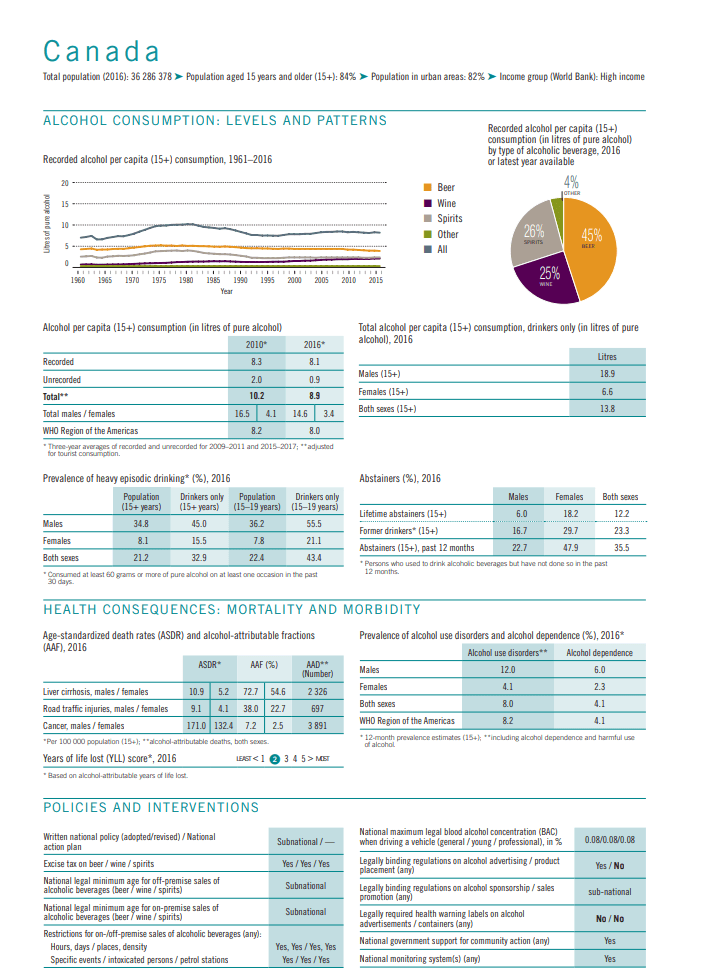Canada: Case for Better Alcohol Policy
There is an urgent need for a strong federal alcohol policy in Canada to significantly reduce alcohol consumption, to curb related harm and to close the loopholes in the current policy.
As IOGT International is documenting, alcohol policy has been ignored for years by the federal government in Canada.
At the same time some provincial governments such as Ontario have even been weakening their alcohol control systems leading to increased harms.
Evidence shows that alcohol is a much bigger problem in Canada than opioids and yet the response by the federal government for this crisis has been flawed.
It is estimated that annually alcohol causes:
- 15,000 deaths,
- 90,000 hospital admissions,
- 240,000 years of life lost,
- An economic toll of $15 billion, which is greater than that from either tobacco use or from cannabis, opioids and all illegal substances combined.
As WHO data further details, at least 3,800 cancer deaths are due to alcohol in Canada, every year and 12% of Canadian men have an alcohol use disorder. Among minors, almost a quarter of the alcohol consumers engage in heavy episodic alcohol use.
Need for an independent federal alcohol act
Even though the World Health Organization has classified alcohol as a type 1 carcinogen, Canadians remain largely unaware of this risk. Attempts to bring about health warning labels or even general labeling stating consumer information such as serving size and ingredients have been thwarted by alcohol industry groups.
In terms of the economy, the federal government lost at least $10.5 billion by failing to adjust alcohol taxes to inflation. After 1986, alcohol taxes were only adjusted properly once in 2017.
A major loophole in the tax system has brought about the sale and consumption of cheap coolers. One such product was the cause of a tragic death of a 14 year old teenager recently. This product had an 11.9% alcohol content, delivering more than four standard units in one 568-millilitre container, retailing at less than a dollar per standard unit. Such alcoholic beverages are marketed to adolescents and minors and yet they are taxed at the same rate as beer and beer tax in Canada does not increase with alcohol content.
Despite the obvious and growing harm, there is no federal Alcohol Act in Canada, unlike the case with cannabis, tobacco and illegal substances.
Public health experts have been calling for such a policy to control for alcohol again and again over the years. With elections nearing, it is now time for the next federal government to formulate a federal alcohol control policy which is independent of alcohol industry interference and follows WHO alcohol policy recommendations, tackling alcohol availability, affordability and marketing of alcohol.

